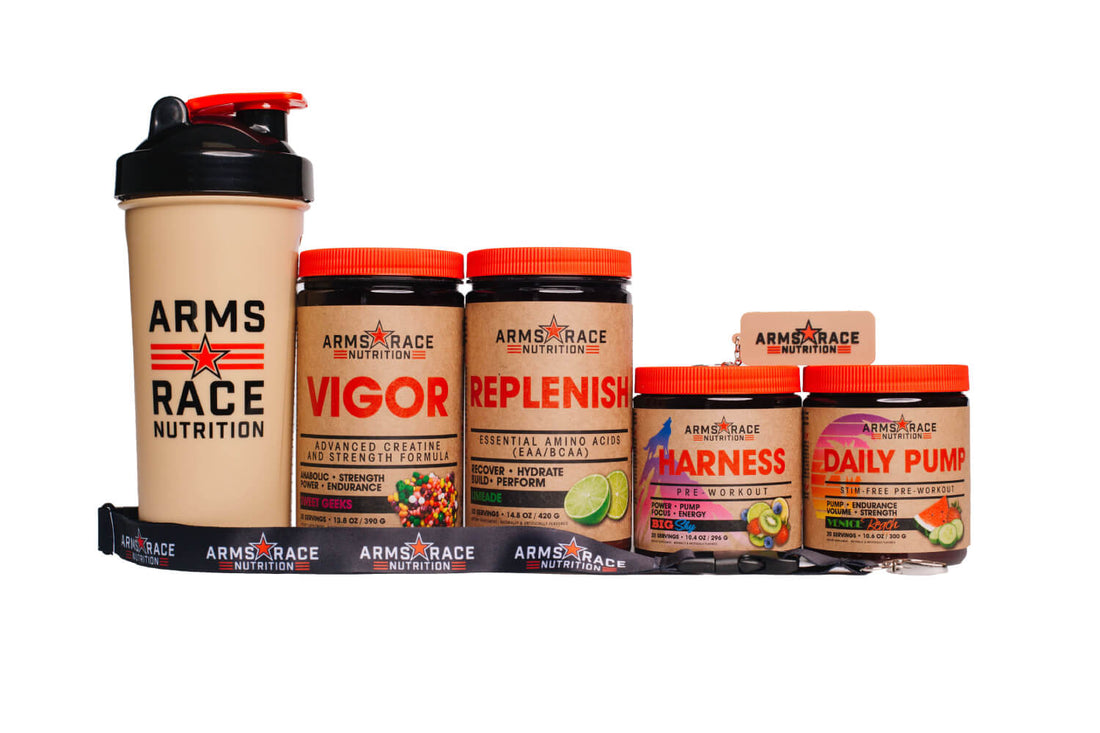
Types of Protein Powder
Protein is an essential nutrient for our bodies, playing a crucial role in building and repairing tissues, supporting immune function, and even aiding in weight management. For those who lead active lifestyles or are looking to supplement their diet with an extra protein boost, protein powders have become a popular choice. However, with a variety of protein types and formulations available, it can be difficult to choose the right one for your needs. In this comprehensive guide, we will explore the different types of protein powder, providing insights into their sources, benefits, and common uses.
Understanding Protein Types
Before delving into the world of protein powders, it's important to understand the various types of protein that exist. Proteins are composed of amino acids, and the specific combination of amino acids in a protein determines its function and role in the body. Here are some primary examples of protein types:
1) Whey Protein
Whey protein stands as one of the most renowned and extensively studied forms of protein powder, originating from the byproduct of milk production during the cheese-making process. Whey protein is a complete protein, meaning it contains all nine essential amino acids, making it an excellent choice for muscle growth and recovery. It is quickly absorbed by the body, making it ideal for post-workout supplementation and increased muscle mass.
Benefits:
- Promotes muscle growth and repair
- Fast absorption rate
- Supports immune function
- May help with weight management
2) Casein Protein
Like whey protein, casein is also derived from milk, but it has a slower digestion rate. Casein is a different protein content that forms a gel-like substance in the stomach, providing a steady release of amino acids over an extended period. This makes it a suitable choice for a nighttime protein source, as it can help prevent muscle breakdown during sleep.
Benefits:
- Sustained release of amino acids
- Supports muscle preservation
- Promotes satiety
3) Plant-Based Proteins
Plant-based proteins have gained immense popularity among vegetarians, vegans, and those with lactose intolerance. These proteins are derived from plant sources and can be just as effective as animal-based proteins when combined properly. Common plant-based protein sources include:
- Pea Protein: Derived from yellow peas, pea protein powder is rich in branched-chain amino acids (BCAAs) and is easily digestible.
- Rice Protein: Made from brown rice, rice protein is hypoallergenic and contains a balanced amino acid profile.
- Hemp Protein: Hemp seeds are a complete protein source rich in omega-3 fatty acids and fiber.
- Soy Protein: Soy protein is derived from soybeans and is another complete protein source. It is often used in various processed foods and supplements.
Benefits:
- Suitable for vegetarians and vegans
- Promotes muscle growth and recovery
- May lower cholesterol levels
4) Collagen Protein
Collagen protein is essential for healthy skin, hair, nails, and connective tissues. It is derived from animal protein sources like bones, skin, and cartilage. Collagen supplements are popular for promoting joint health and improving skin elasticity.
Benefits:
- Supports joint and bone health
- Enhances skin, hair, and nail health
- Aids in digestion
5) Egg White Protein
Egg white protein is a high-quality protein supplement derived from egg whites. It is naturally low in fat and carbohydrates and provides all essential amino acids.
Benefits:
- Supports muscle growth and repair
- Low in fat and carbohydrates
- Easily digestible
Common Uses of Protein Powders
Now that we've explored the various types of protein powders available, let's discuss their common uses and benefits.
1) Muscle Building and Recovery
Protein powders are a go-to choice for individuals looking to increase their protein intake and support muscle growth and recovery. When your body consumes protein, it needs to be absorbed by doing extensive workouts. Whey protein concentrate in particular, is highly effective in this regard due to its rapid absorption rate.
2) Weight Management
Protein can help you feel fuller for longer, making it a valuable tool for weight management and appetite control. Plant-based protein powders are often low in calories and can be incorporated into weight loss plans.
3) Dietary Restriction
Individuals with dietary restrictions, such as vegans and vegetarians, can use plant-based protein powders or dietary protein to meet their protein needs. These options offer a convenient and ethical source of protein.
4) Convenience
Protein powders are convenient for people with busy lifestyles or those who struggle to meet their protein requirements through whole foods alone. They can be easily used to form protein shakes, smoothies, or other liquid recipes.
5) Specialized Uses
Certain protein powders, such as collagen protein, are chosen for specific purposes like improving skin health or supporting joint function. These specialized powders offer targeted benefits.
How to Choose the Right Protein Powder?
Selecting the right types of protein supplements depends on your individual goals, dietary preferences, and any dietary restrictions you may have. Here are some tips for choosing the best protein type for your body preferences:
-
Identify Your Goals: Determine whether you want to do muscle protein synthesis, lose weight, or address specific health concerns. This will help you choose the protein powder that aligns with your objectives.
-
Consider Dietary Restrictions: If you follow a vegetarian, vegan, or dairy-free diet to build muscle, opt for plant-based protein powders or alternatives like pea protein, hemp protein, or soy protein.
-
Check for Allergens: Some protein powders may contain allergens like dairy or soy which may lead you to protein deficiency. Always check the label for allergen information if you have sensitivities or allergies.
-
Evaluate Ingredients: Look for protein powders with minimal additives, artificial sweeteners, and fillers. High-quality protein powders should have a simple ingredient list.
-
Read Reviews and Seek Recommendations: Reading customer reviews and seeking recommendations from trusted sources can help you find a protein powder that suits your needs.
Ready to Fuel Your Fitness Journey? Choose Your Protein Powder!
Protein powders are a versatile and convenient way to supplement your diet with essential amino acids and support your health and fitness goals. With various types of protein powders available, including whey, casein, plant-based, collagen, and egg white protein, there's an option to suit every preference and dietary requirement.
Whether you're a dedicated athlete striving to optimize muscle recovery and performance or someone looking for healthier skin and overall well-being, Arms Race Nutrition is your ultimate destination for a diverse range of high-quality protein powders. Our extensive selection caters to every individual's unique goals and preferences, ensuring you have the perfect protein source to support and propel you towards your desired objectives. With our commitment to excellence and a comprehensive variety of protein options and different fitness clothing attires, we empower you to take charge of your nutritional journey and embark on a path to greater vitality and success.
Remember to choose high-quality products with clean ingredients, and consult with a healthcare professional or nutritionist if you have specific dietary concerns or health conditions. By understanding the types of protein powders and their benefits, you can make an informed choice to support your health and wellness journey.


